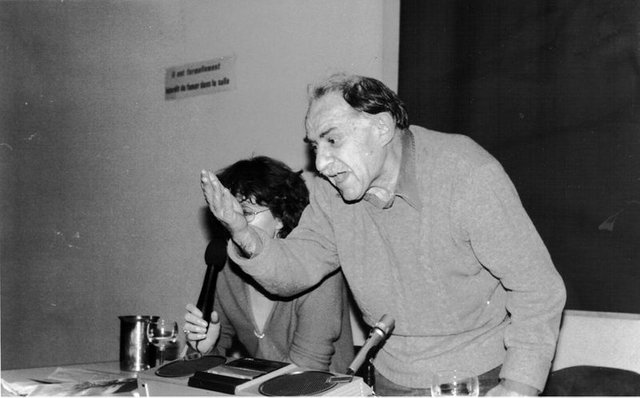Can Libertarian Municipalism save democracy in the 21st century?

The concept of Libertarian Municipalism was founded by the American Anarchist Murray Bookchin, based on the concept of Libertarian Socialism that he pursued late in his life.
It primarily concerns the decentralisation of political power away from a centralised, representative government who are becoming increasingly detached from the citizens that they are supposed to represent, and back into the hands of ordinary citizens through citizen assemblies and direct democratic decisions made at a local (municipal) level, or through labour unions or special interest groups.
Similar to how the rise of cryptocurrencies have pinpointed the redundancies of central banks and large corporate financiers, by - for want of a better phrase - cutting out the middle man, I believe that direct democratic decisions can be made through the use of blockchain technology without the use of a ‘representative’ congressman or parliamentarian to decipher the will of the people.
A great example of the gap between elected representatives or bureaucrats and the popular will of the people is the recent decision by the US FCC to roll back net neutrality. The US population overwhelming wanted net neutrality regulations to remain (90%+ by some polls), but the commission board voted to revoke the protections after a lot of face time with telecom company lobbyists and very little with internet users. Through the use of direct democracy, internet users could sign up to an assembly of internet users and vote on the issue through a blockchain-based referendum. Or each local municipality could vote on whether to keep the regulations on a local level.
Decentralisation is the key to unlocking democracy in the 21st century. Washington/Westminster politicians too easily fall prey to the wishes of financial interests and vote against the overwhelming wishes of the citizens they supposedly represent. We now have the technology to implement a genuinely grassroots system of government, so why not use it?

You can read more about Bookchin's ideas at the Institute of Social Ecology or Libcom:
http://social-ecology.org/1999/08/thoughts-on-libertarian-municipalism/
Good ideas. Any way to break up centralized control is valid in my opinion. Concerning the internet and blockchain, I would like to see a concerted effort to develop #meshnets. This would dramatically decentralize the networks such that discussing #netneutrality policy and the like would be pretty much pointless.
Meshnets would literally allow individuals to run their own ISP and incentivise a whole new market that could not be controlled.
I'd never even heard of Meshnets, but it sounds fascinating.
If my understanding is correct, it could break up the traditional hierarchal structure from a central ISP to consumers, and instead implement a truly open source network that cannot be controlled or manipulated by a central body.
https://en.wikipedia.org/wiki/Mesh_networking
Exactly.
The challenge, as with all things decentralized, is that people will have to be responsible for their own.
Hello @ thatsnumberwang . If Libertarian is primarily about shifting the locus of government, what does it say about what government should not be doing once the locus is shifted? I ask because my superficial acquaintance wth Libertarian tells me it is all about making sure the elected government does not do certain things.
@lestatisticien, I'll take a swing at that. I think that generally speaking, libertarians support any reduced use of force, which government is monopoly of. So, its not so much the focus specifically that are concerned with, but the legitimacy of it in the first place.
Concern of specific focus of government is what gets us this binary or partisan system we have now.
Oh I see. So I suppose that by shifting the locus of gov. more to municipalities they will promote less national war-like activities.
Cheers!
Yes, I think so. I would like to see things brought all the way down to the individuals.
I have scanned the titles from some of your past posts, @diggndeeper.com, and it seems we have a strong common interest. You might sense that when you see my article entitled “The BANCOR Protocol Could Make Small-Community Cryptocurrencies Viable“ located at https://www.marketstatsanalytics.com/bancor_smart_tok.html .
FYI, SMTs are planned to have the same functionality as the Bancor protocol, in terms of supporting small community cryptocurrencies.
I have the intuition that the matter of having received crypto transfers and making use of them to purchase goods and services remains a major issue around the world today, at least for people with modest means. Bringing beneficial change down to the individual level will require some breakthrough on this matter.
I would love to see an international survey of the capability to make use of crypto payments to acquire goods and services, with breakdowns by country, sex and age, and socioeconomic category (the latter including education, of course).
I am in the early stages of trying to organize a cryptocurrency usage project in a small community in Jamaica. The underlying notion is to use a crypto currency anchored in the delivery of person-to-person services or homemade goods to build community self-reliance for the upcoming days when access to fiat money may become a much more serious problem than it is today. (Each token issued will represent a unit (as yet undefined) of service delivered by one person to another (in the time banking field that the unit is one hour of service regardless of the content of the service and the skills/knowledge involved). A token received will be tradable, thus helping to break one of the most serious barriers associated with simple bartering.)
Do you know of any chat channel, e.g. at the Discord.app, where people interested in voluntary and cooperative activities gather to exchange information, debate ideas, etc.?
Happy 2018, BTW. I am now following you.